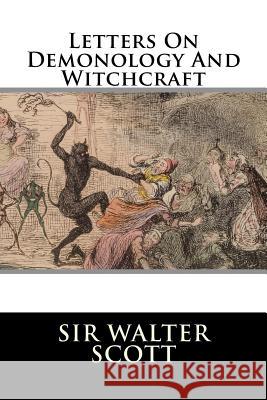Letters On Demonology And Witchcraft » książka
Letters On Demonology And Witchcraft
ISBN-13: 9781519151377 / Angielski / Miękka / 2015 / 118 str.
The book takes the form of ten letters addressed to Lockhart, the epistolary mode permitting Scott to be both conversational in tone and discursive in method. In these, Scott surveys opinions respecting demonology and witchcraft from the Old Testament period to his own day. As a child of the Enlightenment, he adopts a rigorously rational approach to his subject. Supernatural visions are attributed to 'excited passion', to credulity, or to physical illness. The medieval belief in demons is based on Christian ignorance of other religions, leading to the conviction that the gods of the Muslim or Pagan nations were fiends and their priests conjurers or wizards. In the post-Reformation period, the primitive state of science and predominance of mystical explanations of natural phenomena fed fear of witchcraft. In the late sixteenth and seventeenth centuries, witches were hunted with near-hysterical zeal. Examining Scottish criminal trials for witchcraft, Scott notes that the nature of evidence admissible gave free reign to accusers and left the accused no chance of escape. Prisoners were driven to confess through despair and the desire to avoid future persecution. Scott also observes that trials for witchcraft were increasingly connected with political crimes, just as in Catholic countries accusations of witchcraft and heresy went together. Advances in science and the spread of rational philosophy during the eighteenth century eventually undermined the belief in supernatural phenomena, although pockets of superstition remain. Scott's account is amply illustrated with anecdotes and traditional tales and may be read as an anthology of uncanny stories as much as a philosophical treatise.
Zawartość książki może nie spełniać oczekiwań – reklamacje nie obejmują treści, która mogła nie być redakcyjnie ani merytorycznie opracowana.











